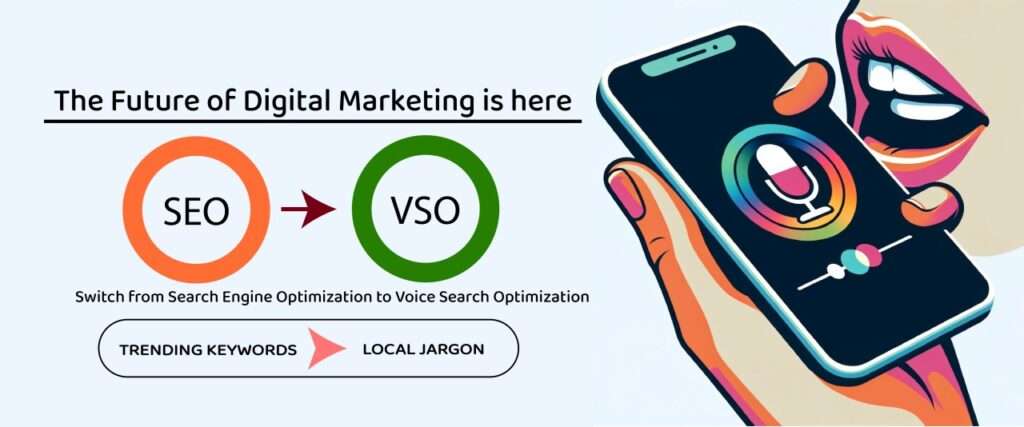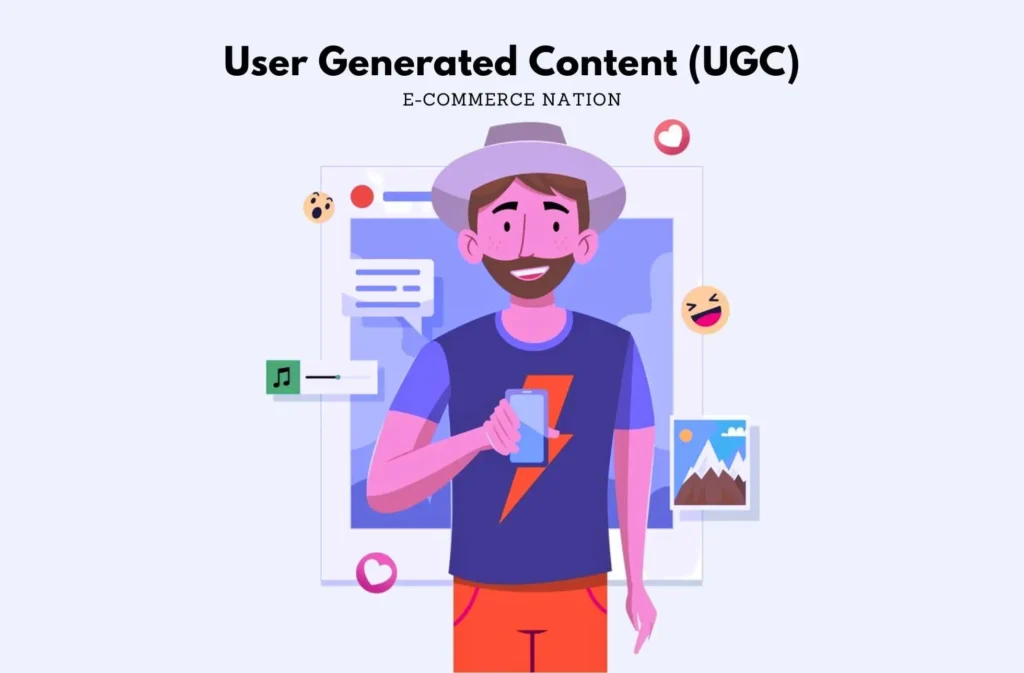
Current Trend in Digital Marketing
Discover the pulse of digital marketing as we dive into the latest trends that are reshaping the industry. From the rise of voice search and the power of artificial intelligence to the unstoppable growth of video marketing and user-generated content, this section is a whirlwind tour of the cutting-edge strategies and techniques that businesses are using to stay ahead in the digital realm.
We explore the future of digital marketing and how these trends are shaping the way we connect with audiences.
Trend No. 01 Voice Search
The Very First Trends of Digital Marketing is Voice Search. Optimizing digital marketing strategies for the increasing popularity of voice search is beneficial for businesses.

- When optimizing website content, it is important to focus on long-tail keywords and conversational phrases to align with how people speak rather than type.
- Improving website structure is essential, making sure that the website is mobile-friendly and loads quickly since voice searches are predominantly done on mobile devices.
- Create FAQ pages that anticipate common questions people may ask and provide detailed answers on your website. This increases the chances of appearing in voice search results.
- Incorporate schema markup by adding structured data to your website. This provides search engines with more context about your content, helping them understand it better and potentially rank higher in voice search results.
- With voice searches being often location-based, it is essential to focus on local SEO. Optimize your website and online presence to appear in local search results.

Trend No. 02 Artificial Intelligence
The Second Trend of Digital Marketing is AI. Artificial intelligence (AI) is playing a transformative role in the world of digital marketing. It is revolutionizing automation, personalization, and data analysis capabilities.
- Automation: AI-powered tools are simplifying processes like content creation, email campaigns, and social media scheduling.
- Personalization: AI algorithms are analyzing user data to offer personalized experiences, customized recommendations, and targeted advertisements.
- Data Analysis: By analyzing vast amounts of data, AI algorithms unveil valuable insights, identify patterns, and enable marketers to make data-driven decisions and optimize campaigns.
- Chatbots: AI-powered chatbots provide instant customer support and assistance, improving the overall user experience and reducing response time.
- Voice Search: AI-driven voice assistants such as Siri and Alexa have transformed the way people search for information. This shift necessitates voice search optimization in digital marketing strategies.
Trend No. 03 User-Generated Content
The Third Trend of Digital Marketing is User-Generated Content. User-generated content has become a powerful tool in digital marketing, allowing brands to leverage the creativity and authenticity of their customers. Here are some benefits of user-generated content:

- Authenticity: User-generated content provides a genuine and trustworthy perspective on a brand or product.
- Engagement: Encouraging users to create and share content fosters a sense of community and deeper engagement with the brand.
- Creativity: User-generated content showcases the unique ways customers use or interact with a product, inspiring others.
- Reach: When customers share their experiences with a brand, it reaches a wider audience, extending the brand’s reach organically.

Trend No. 04 Influencer Marketing
The fourth Trend of Digital Marketing is Influencer Marketing. Incorporating influencer marketing has emerged as a widely used strategy in the realm of digital marketing. By collaborating with influencers, brands effectively broaden their reach and establish trust with their target customers. Implementing influencer marketing involves considering several key points:
- Identifying the appropriate influencers: It is renowned to select influencers whose values, audience, and content are aligned with your brand.
- Setting clear goals: Clearly define the desired outcomes of influencer collaborations, whether it is enhancing brand awareness, driving engagement, or increasing conversions.
- Creating authentic content: Encourage influencers to generate genuine and relatable content that resonates with their followers.
- Tracking and measuring results: Utilize tracking tools and analytics to gauge the impact of influencer campaigns and make necessary adjustments to strategies.
- Establishing long-term relationships: Foster ongoing partnerships with influencers to build trust and maintain consistent brand messaging.
